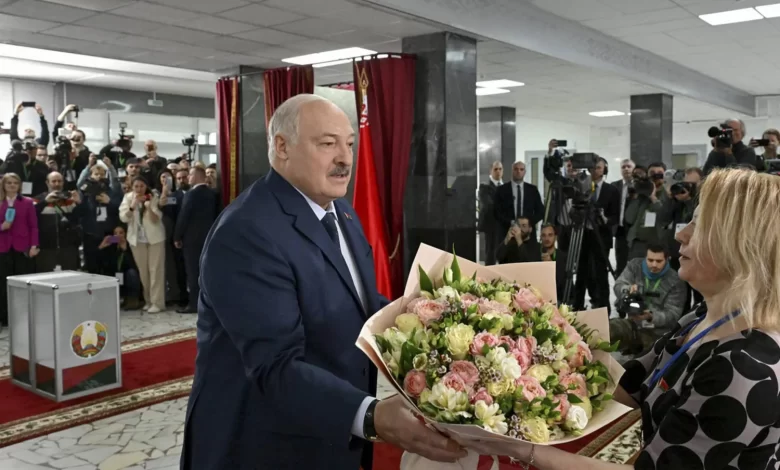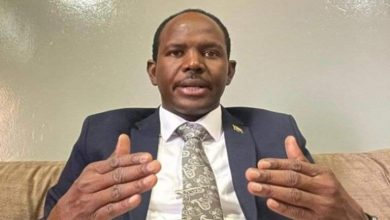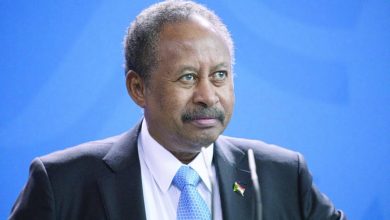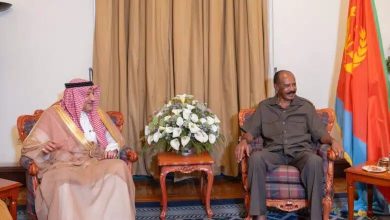InternationalNews
Wide European Condemnation of Belarus Presidential Elections

On Sunday, Belarusians headed to polling stations in a presidential election, the outcome of which is almost certain in favor of Alexander Lukashenko, who has been in power since 1994, amid the absence of opposition that has been suppressed during his rule.
This marks the first presidential election in Minsk since Lukashenko’s crackdown on mass protests against his rule in 2020. Since then, the Belarusian president allowed Moscow to use his country’s territory to invade Ukraine in 2022, a move he said he “has no regrets about.” The European Union, critics of Lukashenko, and human rights organizations have described the elections as “sham,” according to AFP.
Exiled opposition leader Svetlana Tikhanovskaya, speaking from Warsaw, stated, “What is happening in Belarus is a farce,” describing Lukashenko as a “criminal who has seized power.” She called for the release of all political prisoners and the holding of free elections.
A New Term
With this election, the 70-year-old Lukashenko seeks to continue his rule for at least five more years at the helm of this former Soviet republic, which borders the EU, Ukraine, and Russia.
In Minsk, Nadezhda Guzhalovskaya (74), who described herself as a “patriot,” said she voted “for the first time in 20 years.” Like many voters, she supported Alexander Lukashenko, saying, “I don’t want an uprising here,” referencing the pro-democracy revolution that erupted in Kyiv in 2014. She added, “Everything might not be perfect because we are not in a democracy,” touching on a taboo topic in the repressive political climate. Meanwhile, Irina Lebedeva (68) remarked, “Thanks to our president, there is peace in the country.”
Lack of Legitimacy
In contrast, EU foreign policy chief Kaja Kallas said on Saturday that Lukashenko “lacks any legitimacy,” describing the elections as a “mockery” and an “insult to democracy.”
Lukashenko, for his part, warned his opponents on Friday, saying, “We will never repeat what happened in 2020!” when tens of thousands of Belarusians protested against rigged presidential elections. Backed by his ally Russian President Vladimir Putin, Lukashenko has strengthened his grip on power, targeting his opponents with arrests and lengthy prison sentences.
According to the UN, over 300,000 Belarusians out of a population of 9 million have fled the country for political reasons, mostly to Poland.
Facing this repression, Western nations imposed severe sanctions on Belarus, pushing Lukashenko to accelerate his rapprochement with the Kremlin and abandon the balancing act he had maintained in relations with Moscow and the West.
A Staging Ground for Ukraine War
As a result of this alignment, Belarusian territory became a staging ground for Vladimir Putin’s forces in February 2022 to invade Ukraine. Moscow deployed tactical nuclear weapons there in the summer of 2023, posing a threat to Kyiv and NATO members sharing borders with Belarus.
However, Lukashenko has presented himself as a bulwark against the chaos of the war in Ukraine, asserting that his country “does not want to participate in the fighting.” Belarus, under Lukashenko—dubbed the “last dictator in Europe”—has retained much of the Soviet Union’s traditions and infrastructure. Unlike Russia, the Soviet KGB retained its name in Belarus, and the country continues to impose the death penalty.
Economically, Belarus remains state-controlled, with Lukashenko altering the country’s flag in the 1990s, which has since become a symbol of opposition.
Human rights organizations estimate that there are over 1,200 political prisoners in Belarus. On Sunday, Lukashenko said political prisoners could be released if they requested pardons but ruled out dialogue with exiled opponents. After casting his vote, he told reporters, “We have established democracy in Belarus… We are not pressuring anyone nor silencing anyone.” He added that imprisoned critics must ask for clemency, stating, “If you do not request a pardon, it means you’re fine. You have to ask for it.”



